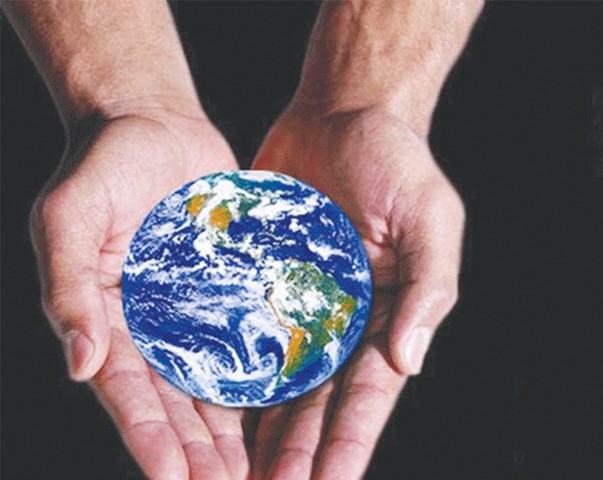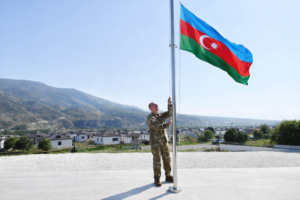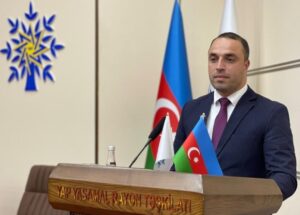Global Dignity Amidst Global Crises

Recently, during a session of the Canadian Parliament, Giovanna Mingarelli delivered a deeply resonant statement marking the twentieth anniversary of the Global Dignity movement. Her words were simple yet profound: “Dignity isn’t just a word, it’s something we live, create, and share through our stories.” That statement, though brief, carried the moral weight of an idea the world desperately needs to revisit the belief that human dignity is not a privilege granted by states or institutions, but an inherent right that must shape how we live, educate, govern, and resolve conflict.
At a time when the world is overwhelmed by crises, wars in the Middle East, oppression of minorities, climate-induced migration, economic inequality, and social polarization, the idea of global dignity becomes not only moral but practical. It represents a universal framework for coexistence, harmony, and peace. Global dignity values kindness, respect, compassion, justice, and empathy are not sentimental ideals but necessary political principles to rebuild trust between people and nations.
The world stands at a crossroads. According to the United Nations High Commissioner for Refugees (UNHCR), more than 123 million people are now forcibly displaced the highest number ever recorded. The number of active conflicts across the world has reached a post–World War II peak. In South Asia, millions live under the constant shadow of poverty and unemployment, while in the Middle East, entire generations have been raised amid destruction and occupation. Authoritarianism has resurged globally, with democratic freedoms declining in more than 60 countries according to recent global freedom indices. Behind every statistic lies the erosion of dignity; a child denied education, a woman silenced by fear, a refugee stripped of identity. The idea of global dignity invites the world to reimagine politics, economics, and social relations. It demands that we view development not as the accumulation of wealth or power but as the expansion of human freedom and respect. Dignity grows in spaces where people are treated not as instruments or consumers but as beings capable of thinking, creating, and transforming their own realities. Education, therefore, becomes a process of liberation — teaching individuals to reflect, question, and act to change their circumstances rather than accept oppression as fate.
If one studies the roots of current global crises, one finds that their essence is a crisis of dehumanization. Where people are denied voice and agency, anger and alienation grow. The rise of militancy and terrorism is not merely ideological; it is born from humiliation, exploitation, and exclusion. When individuals are stripped of self-worth and meaning, violence becomes the distorted language of the unheard. Thus, eradicating terrorism and extremism cannot rely solely on military power; it must begin with restoring dignity through education, inclusion, justice, and fair economic opportunities. In societies plagued by conflict and inequality, dignity offers a moral compass. It tells us that no human being should be reduced to a statistic, no community should be labeled as expendable, and no nation should be allowed to crush its people under the pretext of order or security. When states weaponize power, the role of the people becomes to reclaim their humanity through solidarity and moral courage. Global dignity, in this sense, is not a utopia, it is resistance to humiliation in all its forms.
Kindness, though often seen as a personal virtue, can become a transformative political force. When institutions embody kindness through fair justice systems, accessible healthcare, equitable education, and compassionate governance, they restore faith in society. A government that treats its people with respect earns legitimacy; one that rules through fear breeds instability. The global dignity movement thus calls for a transformation of power — from domination to service, from fear to trust.
Across the Global South, where the legacies of colonialism and economic exploitation remain heavy, the promotion of dignity requires deliberate efforts to end structural inequality. Fair trade, equitable access to technology, debt relief, and investment in human capital are acts of dignity as much as acts of economics. The North, too, must recognize that its prosperity cannot rest on systems that produce poverty elsewhere. Global dignity demands bridges, not walls, it bridges dialogue, cooperation, and empathy that allow mutual understanding and shared growth.
Practical policies can embed dignity into global development. Education must teach not just literacy but empathy and civic responsibility. Curriculums that encourage critical thinking, dialogue, and collaboration cultivate citizens who care, not just compete. Economic systems must prioritize decent work, fair wages, and social protections so that individuals are not reduced to disposable labor. Legal frameworks should guarantee equality before the law, protect minorities, and ensure that governments are accountable to the people.
Security, too, must be redefined. True security is not achieved by militarization but by justice, inclusion, and opportunity. When people have education, employment, and voice, they are less vulnerable to manipulation by extremist ideologies. Community policing, restorative justice, and peacebuilding programs grounded in respect and reconciliation can replace cycles of revenge with cycles of trust.
In the Middle East, where decades of occupation and war have stripped communities of their right to self-determination, the language of dignity is more powerful than that of dominance. Peace cannot be imposed by force; it can only grow from mutual recognition of humanity. In South Asia, where poverty and political exclusion persist, dignity requires the empowerment of marginalized groups, fair governance, and equitable development. In other regions where state oppression continues, dignity becomes the moral foundation for resistance — the insistence that human beings are not mere subjects of the state but participants in shaping their destiny.
Global dignity also has an environmental dimension. Climate change is, at its core, a dignity issue: those who contribute least suffer the most. Protecting the planet means protecting the right of future generations to live with safety and hope. Sustainable development cannot succeed without social justice; and social justice cannot thrive without ecological balance.
Statistics remind us how urgent this transformation is. The World Bank reports that nearly 700 million people still live in extreme poverty. The Global Terrorism Index shows that acts of terror are concentrated in regions marked by injustice and inequality. Surveys across continents reveal growing mistrust in political institutions, fueled by corruption, polarization, and inequality. Yet, studies also show that societies with higher levels of social trust and empathy record lower crime rates, stronger democracies, and higher well-being. The evidence is clear, dignity is not an abstract moral ideal , it is a measurable foundation of peace and progress.
To move forward, global governance must embed dignity as a measurable indicator of success. International organizations should monitor not just economic growth but the degree to which people feel respected, heard, and safe. Aid and development programs should prioritize community ownership, gender equity, and participatory decision-making. Cultural exchange programs, digital storytelling, and youth collaborations across countries can foster empathy and understanding, helping people see themselves in each other’s struggles.
In both the Global North and South, societies must learn again to listen to see the world through the eyes of those who suffer. Building bridges of dignity means replacing competition with cooperation, prejudice with compassion, and indifference with action. It means understanding that peace built on fear is fragile, but peace built on respect endures. Giovanna Mingarelli’s words remind us that dignity begins with how we treat each other in classrooms, workplaces, parliaments, and streets. It is lived through gestures of kindness and fairness, through systems that respect difference, and through voices that refuse to be silenced. Global dignity is the antidote to humiliation, the foundation of justice, and the promise of coexistence.
If the world is to heal its fractures, it must build societies where every person regardless of race, religion, or nationality can stand with self-respect. The movement for global dignity, born in classrooms and carried to parliaments, must now shape the moral direction of international policy. Its values kindness, compassion, equality, and justice are not luxuries; they are necessities for survival. Only when the world organizes itself around dignity will we find lasting peace, true democracy, and a sustainable future where humanity lives not in fear, but in mutual respect and harmony.
Write is a Chief Executive of Global Strategic Institute for Sustainable Development. A think tank based in Islamabad.


